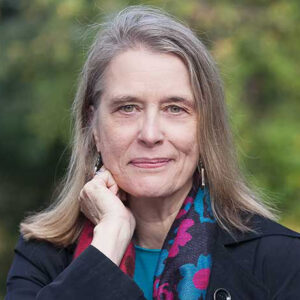May Day is my grandmother’s birthday. Ruth Roberta Duke (1901-2000) was born in Louisiana in the south of the United States. She was the youngest of two daughters and family lore tells us that her father was a ne’er-do-well scion of a rich plantation family with a vague connection to European nobility.
As the story goes, Ruth’s father had more than one family, and after he died, she and her mother moved to Oklahoma to escape the scandal. Circumstantial evidence suggests they moved to the area because Ruth’s older sibling known as “Sister” had married and was living on a farm in the area. The widow and her younger daughter took lodgings in a boarding house.
By coincidence, our great grandmother was running a boarding house in Oklahoma and our grandfather Willard and a few of his siblings were living there. Whether this is where Ruth and Willard met is a matter of conjecture.
It was a challenging period in Oklahoma’s history. The “Spanish Flu” epidemic, in 1918, had hit the state especially hard with the closure of schools, churches and gatherings. A few years later there was a celebration of the ratification of women’s suffrage, but despite this achievement, gross inequalities remained. The notorious Tulsa Race Massacre would take place in the spring of 1921, where mobs of white people attacked and destroyed a prosperous black community. Life was precarious and it would have been especially hard for a single mother and her young daughter with few resources.
Ruth was only thirteen when she married Willard. He was ten years older and photographs of him at this time show a darkly handsome young man with intense deep-set eyes. Our great grandmother was half Cherokee and half French and Willard resembled this side of the family. (He kept the Native American bloodline hidden from his children because it was considered a social drawback. After I learned about it, I took a research trip to the Cherokee Nation reservation in Tahlequah, Oklahoma to try to find out more about my great grandmother’s family.) But back to my grandparents burgeoning romance.
Ruth was fine featured, fair-haired and delicate without much formal education. She would have known very little about the world, but her mother must have recognized that a marriage would help solve their economic problems and secure her daughter’s future. An alliance meant that they could forge links with an established family and obtain a steady breadwinner. Even if it was a love match, Ruth was still a child in comparison to Willard, who had worked in the state’s oil fields and as a field hand and served in World War I. Ruth and Willard were to go on and have two daughters, Margaret and my mother Betty, and divorced when Ruth was in her thirties.
Divorce was not as common as it is today. This was the first of two divorces for our grandmother, which was very unusual for a lower-middle-class woman. In the 1940s, the divorce from Willard would have been complex and expensive. And it would have been a painful and humiliating process requiring “fault” on the part of one spouse to obtain a divorce. Willard would have accepted the blame for the marriage breakdown because it was his decision to leave, but his utter ruthlessness towards her after so many years of marriage must have left Ruth feeling angry, powerless and somehow to blame, even though it was not her fault.
Married off at such a young age, Ruth was never encouraged to be more than a good wife, mother and homemaker. During this period, women were given few choices outside of motherhood and marriage. She agreed to the divorce because of Willard’s blatant adultery. Left with no one to support her, she had to work for the first time outside of the home. Ruth was forced to begin her life over again as a “divorcee,” which would have had a touch of scandal associated with it. Initially, she was employed at a dress shop, and after remarrying, she waitressed to supplement her husband’s low income. (There were no children from this second marriage.) When this husband become violent towards her, she chose to divorce him in her seventies. Fortunately, she was supported in this decision by her daughters.
Despite these experiences, Ruth remained optimistic, interested in life, kind, and fun loving. The southern belle was still in evidence, and she would complain that what she missed most was dancing and going out to parties and not her husbands. She was not much of a reader but she was a very competitive scrabble and bridge player and a regular churchgoer. Despite the financial challenges in her second marriage, she had kept up appearances. Into her sixties, she wore a lustrous, full-length brown mink coat and high heels and scheduled regular hair and nail appointments. And to complete this image of fashionable glamour, she had two spoiled pet poodles.
Our grandmother could have spent her final years questioning her choices and the betrayal of Willard and the violence that ended her second marriage. Instead, she firmly lived in the present enjoying her family and grandchildren. With all of the problems Ruth faced, she had learned to adapt to life’s challenges with grace and patience—her form of defiance.
